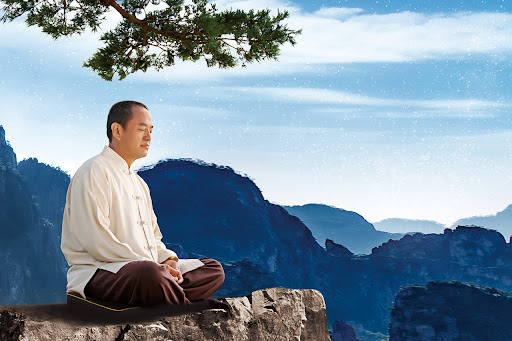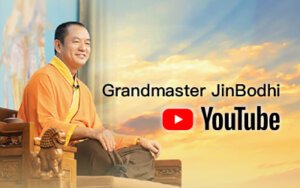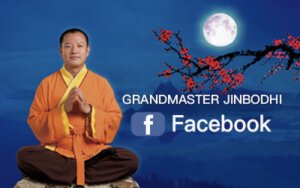There are multiple ways to meditate and a lot of different notions about what meditation is. People of many diverse spiritual traditions may identify meditation with contemplation, prayer, and, in Buddhist meditation, mindfulness and awareness.
What is Buddhist meditation? In Buddhism, meditation is a central practice and technique for achieving enlightenment. Although there are many types of Buddhist meditations for beginners, the one thing they all have in common is cultivating mindfulness. Through the process of contemplation and stillness, we are able to understand the fundamental truths of the Universe. Fundamental Buddhist virtues such as mindfulness, serenity, and insight may be developed by practicing meditation.

Why Should People Practice Buddhist Meditation?
On a practical level, the benefits of Buddhist meditation for beginners are extremely helpful in living a happier, more meaningful day-to-day life. For example, meditation can promote greater self-awareness and compassion for others.
When we have a greater understanding of our thoughts and feelings, we are more capable of dealing with our actions and reactions in a manner that promotes well-being and contentment – both our own well-being as well as the well-being of others around us. The more we see the significance of the well-being and happiness of others, the more compassion and love we feel for them.
Along our meditation journey, we gain the ability to empathize with the experiences of others and to detach ourselves from unproductive emotional responses. This benefits our relationships and personal well-being. We discover that meditation helps us face life’s challenges with a pure heart, calm mind, wise perspective, and sense of self-assurance.
The world around us is constantly changing. But meditation cultivates equilibrium, empathy, and satisfaction that are less reliant on external factors by strengthening our capability to deal with the present moment and providing room to explore the mind. On the way to freedom, we learn to use the conceptions we obtain about the mind and the world.
How to Connect to Buddha’s Blessing During the Meditation?
Meditate with complete sincerity to receive Buddha’s blessing. We have the potential to be divinely blessed via the practice of sincere chanting and blessing meditation. The more sincere we are, the more we open ourselves up to receiving blessings, energy, inspiration, and protection. It is crucial to keep our minds focused and pure. A sincere heart of respect, gratitude, and admiration is more important than purity and calmness.
Let’s take an example of blessing meditation. By connecting our hearts with Medicine Buddha via chanting the Medicine Buddha’s Heart Mantra, we may receive his blessing, protection, and the fulfillment of wishes.
It might seem overwhelming when you are first starting out with meditation. You may not feel like you have accomplished much during your first few sessions. Yet, please bear in mind that self-cultivation is a journey, and it may take time for the benefits you desire to manifest.
Be patient, concentrate on the current moment and your practice rather than the possible outcomes, and gradually return your focus to meditation. These are some more tips for Buddhist meditations for beginners.
Techniques of Buddhist Meditations for Beginners
Finding a meditation practice that suits your needs is essential. Everyone will benefit differently from different styles of meditation practices. How can you choose the approach that best suits you? Continue reading to get a better understanding of the many techniques of Buddhist meditations for beginners.
Chanting Meditation
Chanting meditation or mantra meditation is effective in different schools of thought, like Buddhist traditions. It involves listening to a repeating sound to quiet the mind (“om” being one of the most well-known examples).
Your mantra may either be said aloud or in a soft voice. After repeating the mantra for a while, you may feel the sweetness in your mouth. What does this mean? It means your body has been purified.
When such a feeling arises from practice, your body, which used to be like a piece of decaying wood soaked in a stinky ditch, is now immersed in reviving nectar, which may bring new life in the form of sprouts and green leaves. In the past, your body lacked positive energy, causing illness, afflictions and sometimes death. But now, you feel a sense of being refreshed and cleansed.
Mindfulness Meditation
Let’s turn our focus to meditation, which has many schools and variations. Practicing mindfulness meditation, which has its roots in Buddhist philosophy, is the kind of meditation that has garnered the greatest attention and interest from Western researchers.
With the right practice method, being wise, and having countless virtues and merits, the Buddha attained enlightenment after seven or eight years of practice. This is what meditation brings to life. Many people want to achieve enlightenment and obtain the Way, but in the process of practice, without a teacher’s consistent guidance, some may deviate from the right path. Grandmaster JinBodhi’s methods of guided visualization meditation have brought health and happiness to millions around the world.
When you practice Buddhist meditations for beginners, you can find a feeling of freedom and happiness. You become spiritually happy. All your various afflictions will disappear. You become mentally free and feel physically free and relaxed. If you practice diligently and have the right method, aspirations, and intentions, you can also become enlightened.
Prostrations in Meditation
Prostrations are an integral part of the everyday practice of many ancient Buddhist traditions. In the Buddhist tradition, prostrations are more than just a way to express reverence for the Buddha, the Dharma, and the Sangha. They are also a technique for healing the mind, body, and soul.
One of the ways that prostrations bring us health, healing, and blessings is through clearing our karma. What causes one to suffer so much? The Buddha told us the answer clearly. Present suffering is caused by past actions. In more direct words, you’re short of virtues. What to do? Store merits. Accumulate merits, do good deeds, cultivate a compassionate heart, and pray to Buddha. That is, create and store merits.
When we practice prostrations with a sincere and grateful heart, repent to Buddha and ask for Buddha to help us atone for our past mistakes, prostration can eliminate our negative karma by eradicating our self-attachment, arrogance, and ego.
The physical component of prostration practice involves the whole body. Kneeling to the floor and lowering your entire body to the ground, the accompanying hand and arm movements, visualization, and intentions all convey gratitude, humility, and connectedness with the Universe.

Bodhi Meditation Offers Buddhist Meditations for Beginners!
Try Bodhi Meditation if you are just getting started with your Buddhist meditation practice but aren’t quite certain how to proceed. We provide a selection of Buddhist meditations for beginners and other meditators of varying experience levels.
You may also join a local meditation class. It is a wonderful opportunity to communicate with other individuals with similar interests and discuss and exchange useful information.
Suppose you’ve made it this far in the article. In that case, you’re probably interested in meditation techniques and the sense of bliss and well-being that comes from them. Buddhist meditation methods, in their purest form, cultivate our happiness and awareness. To practice successfully, you need instructions that are both clear and gradual. Bodhi Meditation has designed several inspiring courses. Follow the link to fully appreciate all the benefits that consistent meditation practice has to offer!

